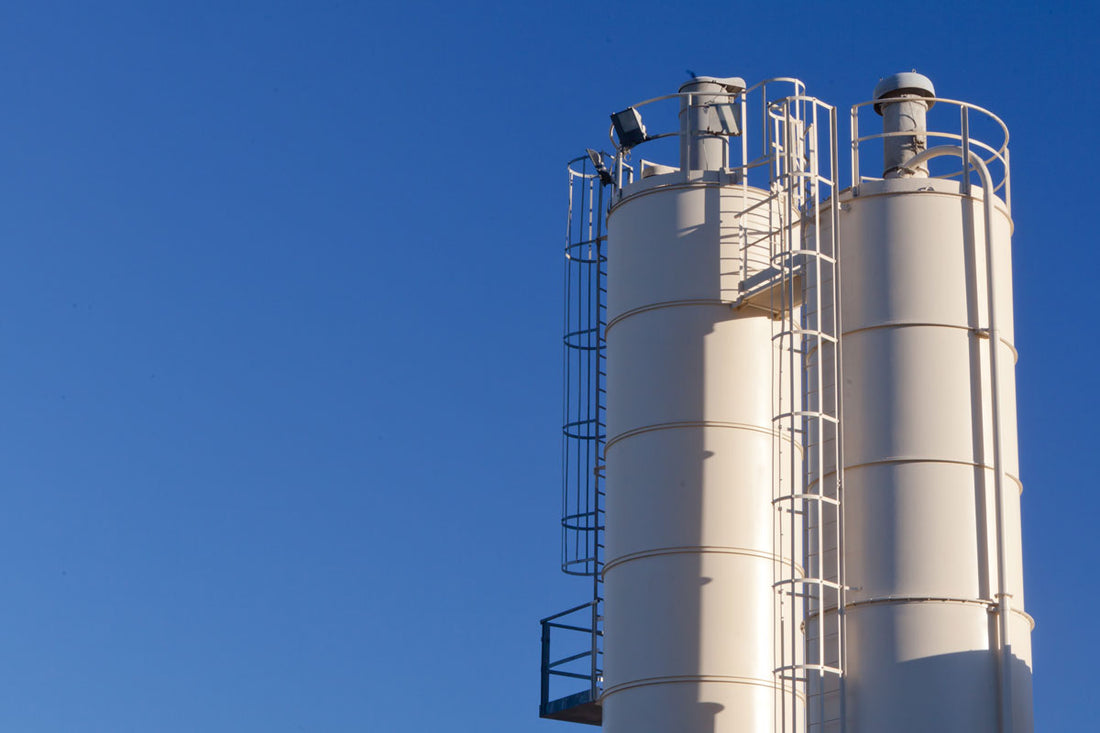
Why Cement Silo Filters are Crucial for Air Quality
Why Cement Silo Filters are Crucial for Air Quality
For those well-versed in the complexities of bulk powder storage, the importance of air quality is a given. While the focus often leans toward the structural and operational aspects of silos, the role of silo filters in air quality management is sometimes relegated to the background. This article aims to bring this critical component into the spotlight, emphasising why silo filters are indispensable for any silo system.
The Fluid Dynamics of Air Quality in Silos
Air quality in a silo is not a static factor; it's influenced by a myriad of variables such as filling processes, discharging activities, and even external atmospheric conditions. The escape of dust and particulates not only poses environmental risks but also has implications for operational efficiency and worker health. This sets the stage for the multi-dimensional role of silo filters.
The Multi-Dimensional Role of Silo Filters
Silo filters are much more than just dust catchers; they serve multiple critical functions:
Particulate Filtration
Dust Capture: Filters are designed to trap dust particles that are displaced during the filling and discharging processes. This is crucial for preventing contamination of the surrounding environment.
Air Purity: By capturing particulates, silo filters also contribute to maintaining the purity of the air within the silo, which can be critical depending on the material being stored.
Pressure Regulation
Pressure Balance: Silo filters allow for the controlled ingress and egress of air, helping to maintain a balanced internal pressure within the silo.
Safety Measures: Proper pressure regulation prevents the risks associated with over-pressurisation, such as silo rupture, and under-pressurisation, like material compaction.
Material Conservation
Waste Reduction: Trapping dust also means less material is lost to the environment. This is not only environmentally responsible but also economically beneficial.
Quality Maintenance: By preventing the escape of fine particles, filters help in maintaining the quality of the stored material.
Health & Safety: Beyond Regulatory Compliance
Worker Protection
Airborne particulates can lead to a range of health issues, including respiratory conditions and skin irritations. Silo filters act as a protective barrier, enhancing worker safety.
Environmental Standards
Non-compliance with air quality standards can result in legal repercussions, including hefty fines and operational restrictions. Silo filters are your first line of defense in ensuring compliance.
Operational Advantages: More Than Just Dust Control
Enhanced Efficiency
Reduced Maintenance: A well-functioning filter system minimises the need for frequent silo cleaning, thereby reducing downtime.
Streamlined Operations: With fewer interruptions for maintenance and cleaning, operational workflows are smoother and more efficient.
Cost-Effectiveness
Long-Term Savings: The initial investment in a high-quality silo filter pays off in the long run through reduced maintenance costs and minimised material loss.
ROI: Given the benefits in terms of material conservation and reduced operational hiccups, the return on investment for a quality silo filter is substantial.
Navigating the Choices: How to Select the Perfect Silo Filter
Material Compatibility
Know Your Bulk: The filter material should be compatible with the type of bulk material stored in your silo.
Performance Metrics
Efficiency is Key - Filters with high-efficiency ratings ensure maximum particulate capture, contributing to both safety and operational efficiency.
User-Friendly Maintenance
Simplicity Counts - Opt for filters that are easy to clean or replace, as this will significantly reduce operational downtime and maintenance costs.
Conclusion
Silo filters are not just an accessory; they are a critical, multi-functional component that impacts air quality, worker safety, and operational efficiency. Their role extends beyond mere regulatory compliance to being a cornerstone for the sustainable and safe operation of your bulk powder storage facilities.

